7 Questions You Must Ask to Hire the Perfect Social Media Consultant
Learn how to hire the ideal social media consultant for your business + skills they need + Q's you should ask them + social media consulting vs management.
Updated December 5, 2023.

It used to be possible for a brand to gain a social following just by posting consistently and spending a few bucks to boost their content.
But that's no longer the case today. With social media platforms becoming ever more saturated by brands trying to sell their products and services, it's never been more difficult for a business to stand out from the crowd.
Studies show that social media management is set to become a $41.6 billion industry by 2026. This growth has been driven by increased competition for user attention, requiring businesses to invest in sophisticated strategies to gain market share.
You can have fantastic content and a cohesive brand identity, but this makes no difference if your intended audience never actually comes across your feed.
This is where contracting an experienced social media marketing consultant can make all the difference to brand awareness and engagement online.
In this article, we're going to define what a social media expert is and how you can find the right one for your business needs.
What is a social media consultant?
A social media consultant is a type of digital marketing professional who specializes in planning and advising businesses on social marketing and strategy and optimizing and growing their client’s social media presence.
Regardless of whether a business is new to social or has an established presence already, the role of social media consultants is to build a roadmap for how brands can achieve better success on social platforms. This could mean more conversions, a higher engagement rate, or value-added partnerships with other brands.
What does a social media consultant do?
Social media consultants advise brands on a variety of social media practices. The goal of these practices is to improve a business's online presence and assist them in connecting with prospective customers via consistent messaging and relevant content.
While social media strategists have their own niches and areas of interest, they are usually experienced in a wide range of different social strategies. Here are the main ones.
Social strategy
A comprehensive social media strategy involves setting social media marketing goals, conducting a full analysis of every account (and competitor analysis on leading accounts in the niche), selecting customer personas, picking the right platform, and choosing the content marketing mix.
Need help creating a digital strategy? Check out our list of the top books on social media.
Planning and publishing
This includes everything in the social media content creation process including planning, writing the copy, designing the post, and scheduling it. An expert marketer should have extensive hands-on experience creating winning social campaigns for your niche.
Social listening and engagement
Social listening is where you track conversations and mentions of your product or brand on social channels. Brands then need to engage in these conversations, answer customer questions, and respond to negative reviews or concerns. It's also vital for brands to engage with their social media community by liking and commenting on their followers' posts.
Analytics and reporting
Data analytics involves measuring how well your content is performing. You can track the traffic trends on a tool like Google Analytics and view metrics on social tools like Buffer or Hootsuite. These tools help you view all the data in one place.
Lead generation
Lead generation is the process of attracting prospective customers who are interested in the products or services you offer. These potential customers are classified as 'leads'.
Lead generation is the first step towards acquiring more customers for your business, making it an essential part of growing your brand and increasing conversion rates. Think of it in terms of Hubspot’s flywheel model.
Social media is one of the most powerful tools available to amplify lead generation. For example, if your business is running a webinar, posting a link or a paid ad on your social media profiles is a key way to increase signups.
Content creation
Content is the backbone of any social campaign. Without relevant and interesting content to post to your social networks, it's impossible to build a following and increase engagement with your brand.
A social media content expert can help to showcase your business's offerings via compelling content such as blog posts, videos, infographics, and customer testimonials. They can also help to coordinate user-generated content campaigns, where brands can leverage reviews and testimonials to build consumer trust.
Influencer marketing
Influencer marketing focuses on building relationships with individuals who have significant followings on social platforms.
Influencer content takes the form of product endorsements, reviews, and giveaways that are aimed at increasing brand awareness among specific audiences who may be interested in your product.
In the world of social media marketing consulting, influencer marketing is quickly becoming one of the most popular services. In 2022, influencer marketing is projected to expand to a $15 billion industry, thanks to the growing popularity of short video formats on TikTok and Instagram.
Social media advertising
We all know that organic reach on social media platforms is not what it once was. Back in 2012, business pages on Facebook were reaching around 16% of their followers. By 2014, this had dropped to 6.5%. Today, organic reach is hovering at around just 2%, thanks to ongoing algorithm changes.
In short, most social media sites have transitioned into a 'pay to play' model where paid advertising has become essential to reach those followers.
Social media advertising comes in several forms, from 'boosting' organic content to native advertising and banner ads. The biggest advantage of paid social is that brands can target specific audiences, but the cost quickly adds up.
Brands need a skilled digital marketing consultant with proven experience running and monitoring campaigns in their specific niche. Ads setup and optimization varies quite a bit from platform to platform so they really need to be an expert in that specific channel.
How do you hire the perfect social media marketer?
Here's a step-by-step process of how to hire the perfect marketing consultant for your business.
1. Set your goals for the position
Before you do anything else, you need to decide what you want to achieve. This means that your business needs to define what success will look like in the position, such as:
- X number of new followers per week
- Achieving X% engagement rate across platforms
- Gain X amount of referral traffic to your website per month
2. Decide on a full-time, part-time, or freelance-basis
While it's tempting for a business owner to recruit for a full-time social expert or consultant job, it's important to assess what your needs are. Going from having no expertise in-house to supporting an entire role requires a big shift in priorities. You need to be sure that your business is in a position to support bringing someone on board.
Outsourcing to a social media management company is the most hands-off option. But if your priority is to focus on time-intensive tasks like creating a strategy, be aware that this is more difficult to outsource than content creation or Facebook advertising due to the large amount of coordination required with your digital marketing team.
3. Define which skills are a priority for the role
No two social media strategies are alike. One brand might want to focus on paid advertising. Others may prefer to use social to amplify their organic content efforts, such as blogs, online courses, or white papers.
This is why no job description should be copied and pasted from another source. What works for one business won't necessarily work for you.
Also, it's important to recognize that social media skills aren't the only ones that matter. Key competencies such as content writing, critical thinking, graphic design, and project management are all essential in a good social media hire and shouldn't be overlooked. An added bonus is experience with email marketing and community management.
4. Post your job ad on appropriate platforms
Now that you've settled on what you're looking for in your hire, it's time to post your job ad. To get as many applications as possible, you should post your ad across multiple platforms. It's a good idea to select both industry-specific and general jobseeking platforms, such as:
- Glassdoor
- Indeed
- Upwork
- Mayple 😉
Top tip: Never overlook the value of social networking. It's always a good idea to ask around your professional networks to see if anyone knows of experienced social marketers that are looking for work. Personal recommendations are always valuable!
How much does it cost to hire a social media marketer?
The cost of hiring a social expert will vary, depending on their level of experience and whether you are hiring someone on a freelance or a full-time basis.
According to Glassdoor, the average salary for a social media consultant is $72,553. This is higher in more expensive cities such as Los Angeles, where the average salary is $78,704.
To hire a social media manager on a freelance basis, you're looking at somewhere between $50 and $200 per hour. Hiring freelancers can work out as more expensive in the long run, so you need to assess which option is going to maximize the value for your business.
In addition to salary, you also need to factor in the associated costs of having a social media specialist in-house. This includes IT, office furniture, and any additional tools and subscriptions that may be required, such as scheduling tools.
7 questions you must ask when hiring a social media consultant
Here are the most important questions you should ask your candidates.
Which social media networks are you most experienced with?
Most marketers have professional experience with the main social media platforms (Facebook, Instagram, Twitter). But if your business wants to focus on growing your presence on just one or two specific channels, it's important to look for a consultant who specializes in these. For example, if Instagram is your brand's most important channel, it's a good idea to look for an Instagram consultant.
On the flip side, brands who aren't sure which social platforms will appeal to their client base should definitely hire a consultant who has a breadth of experience in different formats. Today, a large part of a platform's appeal is generational: Gen Z favors short video formats such as TikTok, while Facebook and Linkedin are the domain of older consumers.
Decide on the platforms you want to use and this will help you to narrow down which consultant is the best fit for your business.
Do you have experience growing brands in my industry/niche?
Every niche is different so it's important for a brand to partner with a digital marketer that has a proven track record in that niche. You don't want to come away with recommendations that have a one-size-fits-all flavor.
Your consultant needs to have extensive knowledge of your particular industry/niche and be able to truly understand the needs and pain points of your potential clients. They should know which types of content and campaigns work and have proven experience growing a social media page of a related brand.
Also, a consultant who is well-connected within your industry is much better placed to make recommendations about your influencer marketing strategy, or what topics you should be targeting in your blog content to take attention away from competitors.
Do you have any experience with running Facebook or Instagram ads?
As we mentioned above, paid ads are no longer an optional investment for brands that are serious about growing their presence on social, they're absolutely required.
Even if you aren't planning to invest big money into advertising at the beginning, it's still important to hire an advertising expert who is familiar with audience targeting and managing ad spend effectively for the types of campaigns that you want to run in the future.
One way of testing their knowledge is to give your shortlist of digital marketing freelancers a competency task of having $500 to spend on a hypothetical ad campaign. Have them outline a campaign idea and how they would allocate the budget to give you a better idea of their thought process and how they approach ad management.
Which tools do you use to measure the ROI of your campaigns?
It may be that your business already has a preferred social media tool, but it shouldn't be a dealbreaker if a promising candidate doesn't have experience with it. It's easy enough for an experienced practitioner to get up to speed on a different platform since they have similar functionality.
Plus, they might have suggestions for other tools that better suit your needs.
Do you have any references?
Always ask for references.
As a business, it's important to verify any information that a candidate gives you during the application and interview process, such as details of their previous position, certain skill sets, or projects they worked on during their time at another company.
Speaking with references helps you to build a more well-rounded understanding of a candidate. A reference can give you details of how that individual approaches tasks, how well they work with others, and most importantly if there are any 'red flags' you should be aware of!
What social media strategies would you use for my business?
If a candidate has gotten to the interview stage, it's fair to expect that they have done some research on your brand and your current social media presence. Asking them to explain what steps they would take if they were given the job is a great way to assess their experience - as well as their enthusiasm for the role.
Some questions you could consider asking are:
- What platforms do you think are most suitable for my brand?
- What content pillars should form the basis of our social strategy?
- How would you recommend ensuring consistency with our posting?
- Who are three influencers that our brand should consider partnering with?
How often do you report the results?
Whether you've opted for social media consulting services or an in-house hire, having a solid reporting system in place is important. Good communication and accountability are the keys to a smooth onboarding process and a successful relationship.
If you're partnering with a social media agency it's likely they already have a reporting process in place for social media optimization, such as weekly or monthly progress reports. If you're hiring a social media specialist directly, you want to make sure that the person is open to having regular meetings and setting clear KPIs that are assessed on a regular basis.
How would you handle a social media crisis?
Your Facebook ad account gets frozen. A disgruntled customer leaves a negative review. An influencer doesn't post about your products as promised.
social media doesn't always go according to plan. Social media is constantly throwing curveballs, and you need to be certain that your social media manager is capable of handling them. Running them through potential scenarios like those above will give you a sense of whether they're up to handling difficult situations.
Recap
Social media is a constantly shifting landscape that never stays still for long. Even if your business is up to date on the latest trends and strategies, it only takes one algorithm change or the launch of a new platform before you're suddenly struggling to keep up.
Businesses of all sizes should hire a consultant for their social media to get a better handle on new features, optimize their digital marketing strategy, and improve their execution.
Need help finding the perfect candidate? We can help. Get started today.

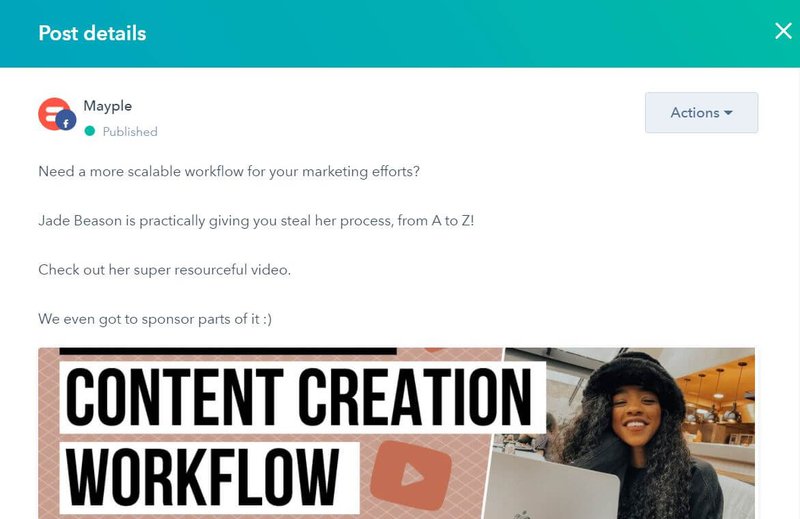

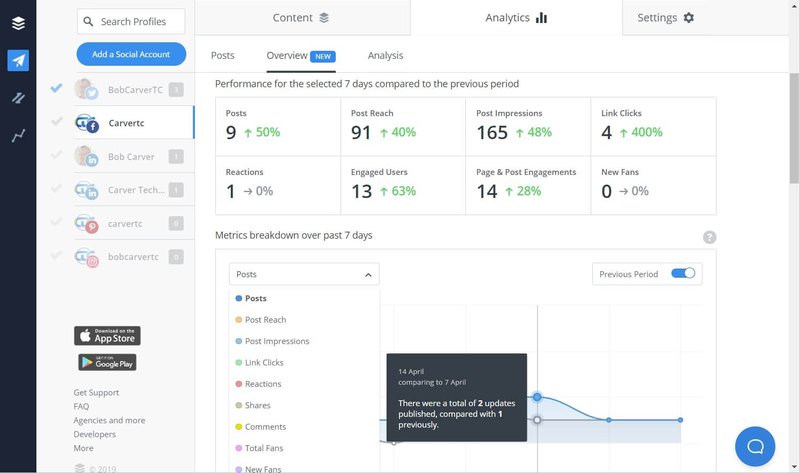

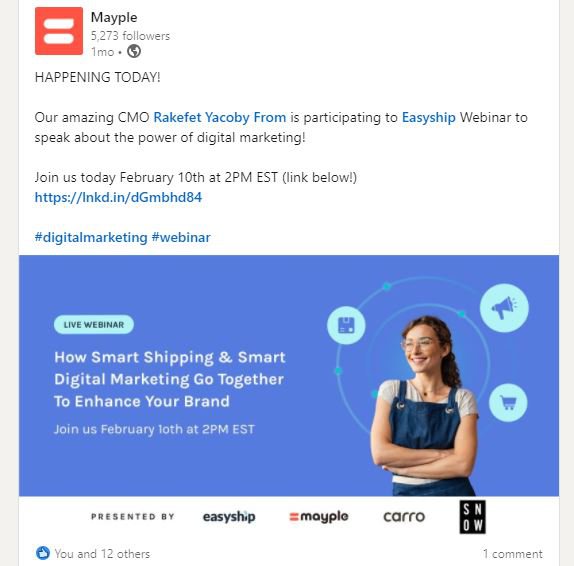

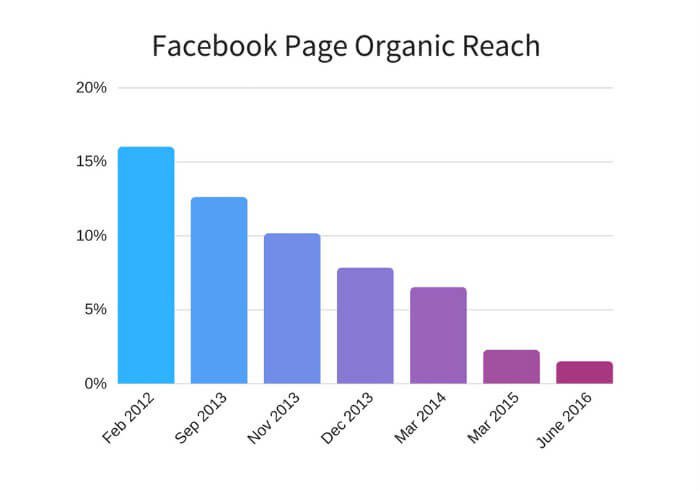
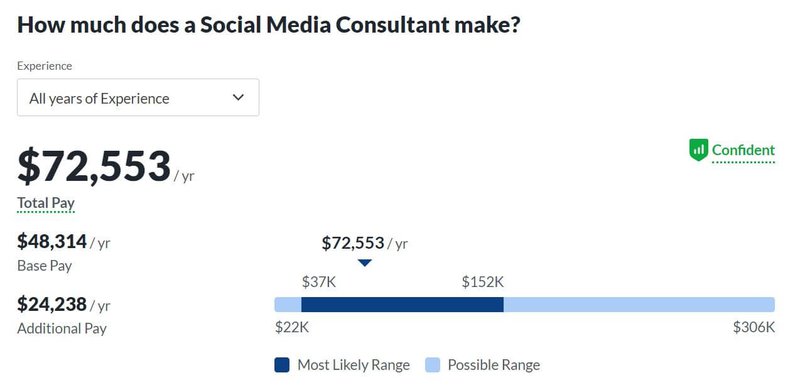

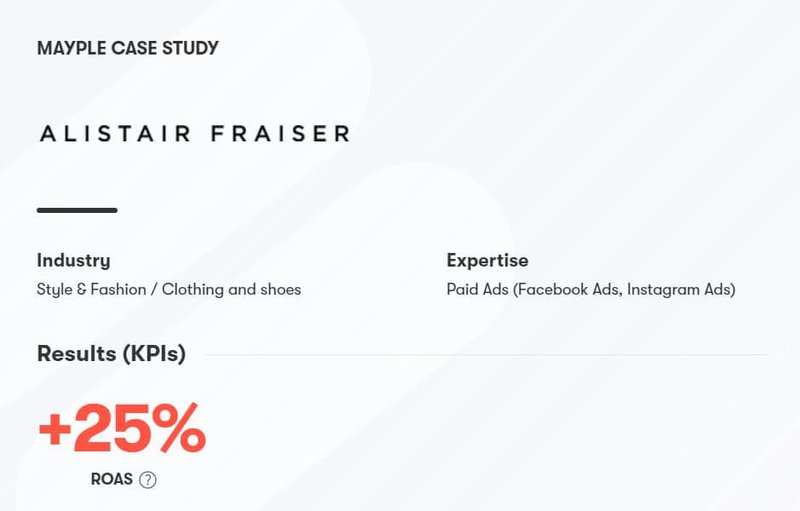
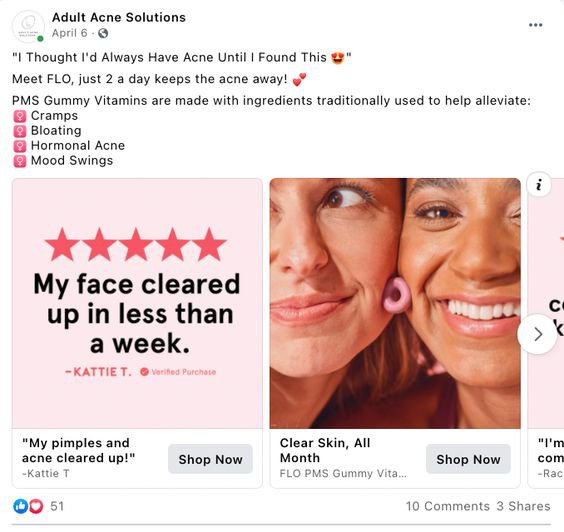


![What is Search Advertising? How it Works + Top Strategies [{year}]](jpg/638732b583274122cec48920_searchadvertising1_2c169e8895eac118ec84d7b2f7255908_2000-1699775632632.jpg)



